Smart Contracts: How They Work and Their Applications

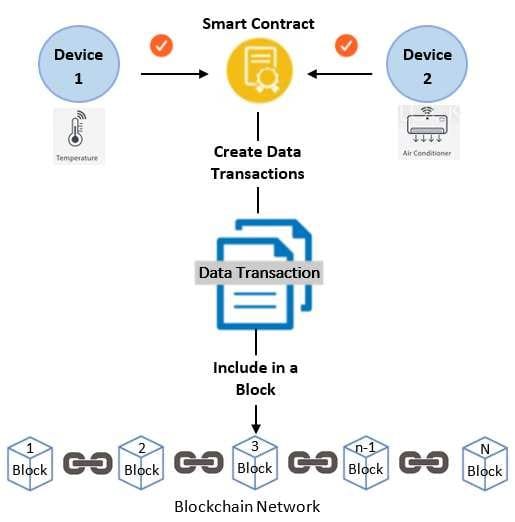
Introduction to Smart Contracts
A smart contract is a self-executing contract where the terms of the agreement are directly written into lines of code. These contracts are stored and executed on a blockchain, ensuring that the contract is tamper-proof and automatically enforceable when predefined conditions are met. The concept of smart contracts was first proposed by Nick Szabo in 1994, and they have since become a foundational element of blockchain technology, particularly with the advent of Ethereum.
How Smart Contracts Work
Smart contracts operate on a straightforward principle: if/when...then.... Here’s a step-by-step breakdown of their working mechanism:
- Agreement: Parties agree on the terms and conditions of the contract. These terms are then translated into code.
- Coding: The contract is coded using a blockchain-specific programming language such as Solidity (for Ethereum).
- Deployment: The coded contract is deployed on the blockchain. This involves sending a transaction from a wallet that includes the compiled code for the smart contract.
- Monitoring: The smart contract continuously monitors the blockchain for the predefined conditions or triggers.
- Execution: When the conditions are met, the contract executes the specified actions automatically. This could involve transferring funds, registering ownership, or any other predefined action.
- Recording: The results of the contract execution are recorded on the blockchain, ensuring transparency and immutability.
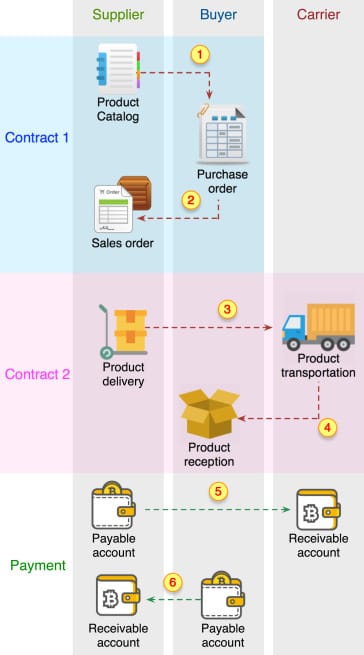
Benefits of Smart Contracts
- Automation: Eliminates the need for intermediaries, reducing costs and speeding up transactions.
- Transparency: All participants can see the contract terms and the execution outcomes.
- Security: Transactions are encrypted and immutable, making them highly secure.
- Trustless: Parties do not need to trust each other; they only need to trust the code.
- Efficiency: Reduces the time and effort required to manage contracts manually.
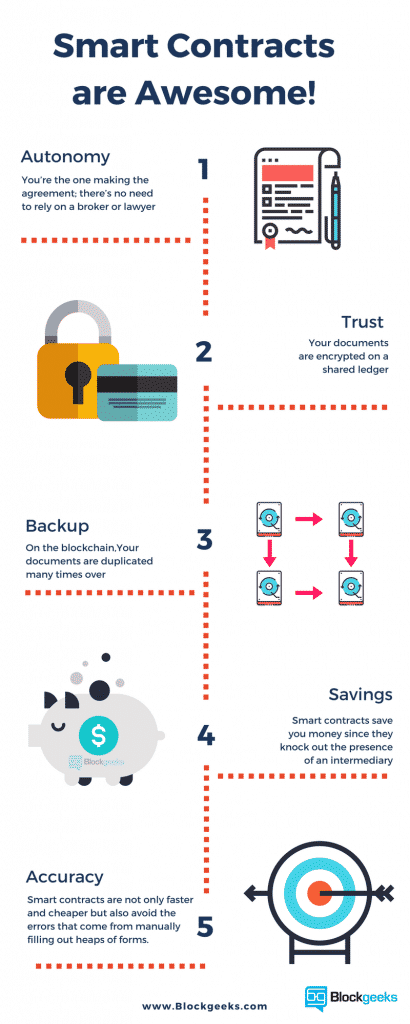
Real-World Applications of Smart Contracts
Smart contracts have a wide range of applications across various industries. Here are some notable examples:
1. Decentralized Finance (DeFi)
DeFi platforms use smart contracts to create financial instruments without intermediaries. Examples include:
- Uniswap: A decentralized exchange that uses smart contracts to facilitate token swaps without a central authority.
- Compound: A platform that allows users to lend and borrow cryptocurrencies through smart contracts, automating interest rates and loan terms.
2. Supply Chain Management
Smart contracts can automate and verify the entire supply chain process, ensuring transparency and reducing fraud.
- IBM’s Pharma Portal: Tracks temperature-controlled pharmaceuticals through the supply chain, ensuring data integrity and transparency.
3. Real Estate
Smart contracts can automate real estate transactions, reducing the need for intermediaries.
- Propy: A platform that uses smart contracts to facilitate real estate transactions, making the process faster and more secure.
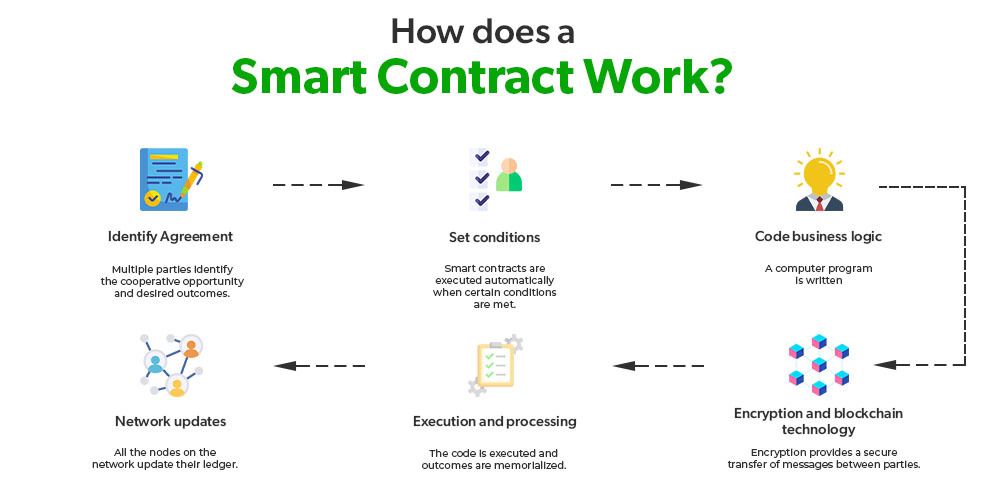
4. Intellectual Property
Smart contracts can manage intellectual property rights and automate royalty payments.
- Tune.fm: Uses smart contracts to distribute royalties to artists based on streaming data, ensuring timely and accurate payments.
5. Healthcare
Smart contracts can manage patient data, streamline clinical trials, and automate insurance claims.
- Clinical Trials: Smart contracts can ensure the secure and transparent sharing of clinical trial data among various stakeholders.
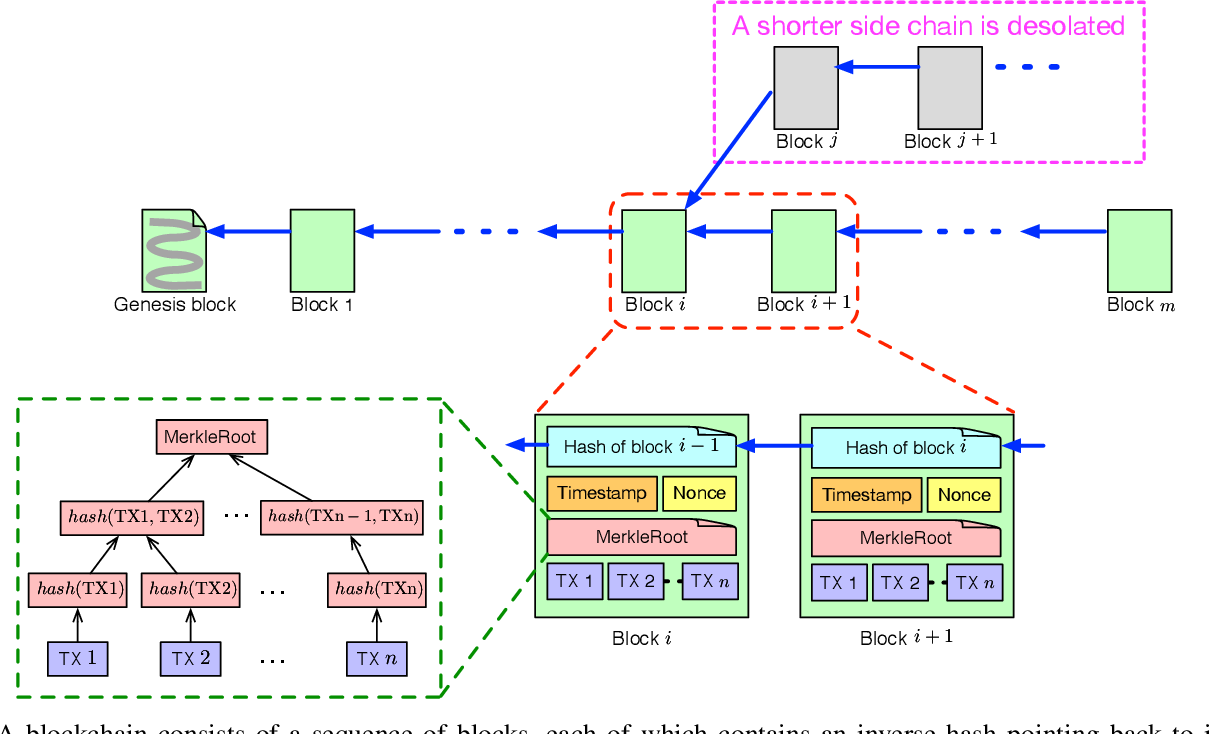
Projects Utilizing Smart Contracts
Several blockchain projects leverage smart contracts to build innovative solutions:
- Ethereum: The pioneer in smart contract platforms, enabling a wide range of decentralized applications (dApps).
- Chainlink: Provides decentralized oracles that allow smart contracts to interact with real-world data.
- Hedera Hashgraph: Uses smart contracts for various applications, including supply chain management and digital identity verification.
Conclusion
Smart contracts represent a revolutionary advancement in the way agreements are executed and enforced. By automating and securing transactions on a blockchain, they eliminate the need for intermediaries, reduce costs, and increase efficiency and transparency. As blockchain technology continues to evolve, the applications of smart contracts are likely to expand, offering new opportunities across various sectors.
Smart contracts are not just a theoretical concept but a practical tool that is already transforming industries. Understanding how they work and their potential applications can provide valuable insights into the future of digital transactions and decentralized systems.
Citations:
[1] https://en.wikipedia.org/wiki/Smart_contract
[2] https://www.spiceworks.com/tech/innovation/articles/what-are-smart-contracts/
[3] https://chain.link/education/smart-contracts
[4] https://hedera.com/learning/smart-contracts/smart-contract-use-cases
[5] https://www.ibm.com/topics/smart-contracts
[6] https://www.geeksforgeeks.org/smart-contracts-in-blockchain/
[7] https://www.coinbase.com/learn/crypto-basics/what-is-a-smart-contract
[8] https://www.investopedia.com/terms/s/smart-contracts.asp






